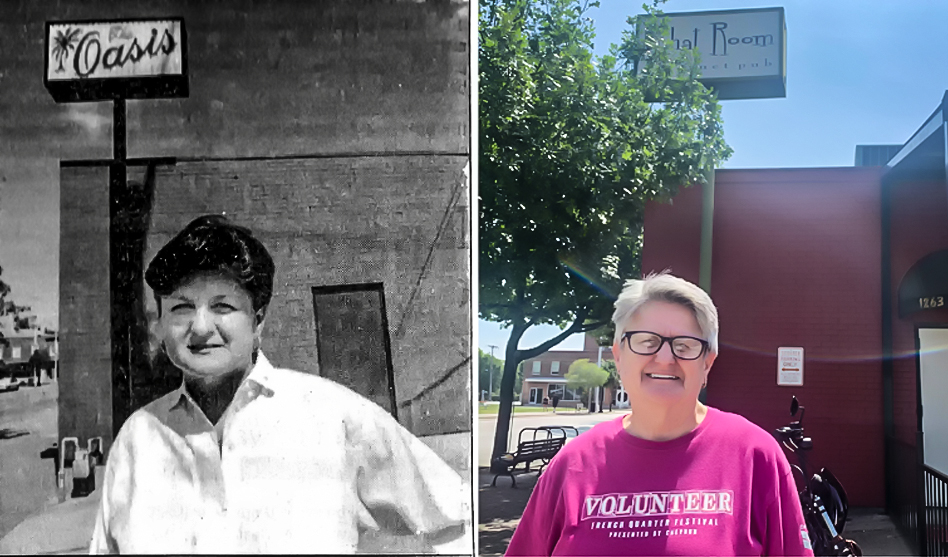
Carolyn Miles in 1995 in front of The Oasis (also known as Cowgirls Oasis) and Miles in 2022 in front her former bar’s current incarnation, The Chat Room Lounge.
In celebration of Women’s History Month, YesterQueer: The Fort Worth Gay History Project continues its series of Gay History Happy Hours with this month’s topic, “Where the Girls Were: What Happened to All of Our Lesbian Bars?” The event will feature guest speaker Carolyn Miles, former owner of Cowgirls Oasis, and takes place next Wednesday, March 15, at 7 p.m. at Liberty Lounge, 515 S. Jennings Ave. at Pennsylvania Avenue.
In 1995, Miles, a retired American Airlines employee, wanted to open a bar geared toward gay professional women. But when neighborhood opposition arose, protests put the bar’s liquor license in jeopardy, which lead to a months-long legal battle. Miles will be on hand to discuss her trials and tribulations, from dealing with neighborhood busybodies to local and even statewide officials.
According to the Lesbian Bar Project — a national campaign created by Erica Rose and Elina Street to “celebrate, support and preserve the remaining lesbian bars in the U.S.” — there were roughly 200 lesbian bars in the country in the 1980s. Today, there are fewer than 30.
In Tarrant County, there were more than 30 lesbian bars over the years . But today there are none.
Todd Camp said the March YesterQueer gathering will “explore many of the early nightspots for women in Tarrant County — places like D.J.’s Bar & Restaurant, the Split Image, Partners, Tequila Sunrise, the Powder Puff and the Purple Lady — while not shying away from the segregation and discrimination women faced in gay male establishments in earlier decades.”
YesterQueer: The Fort Worth Gay History Project is “dedicated to preserving the stories, memories, photos and ephemera of the LGBTQ community of Tarrant County [and] to share that information across a variety of digital channels as well as through public discussions and events designed to generate interest in our community’s rich history, not only with the people who remember it but with future generations of queer youth and anyone else who hopes to learn from it.”
— Tammye Nash
